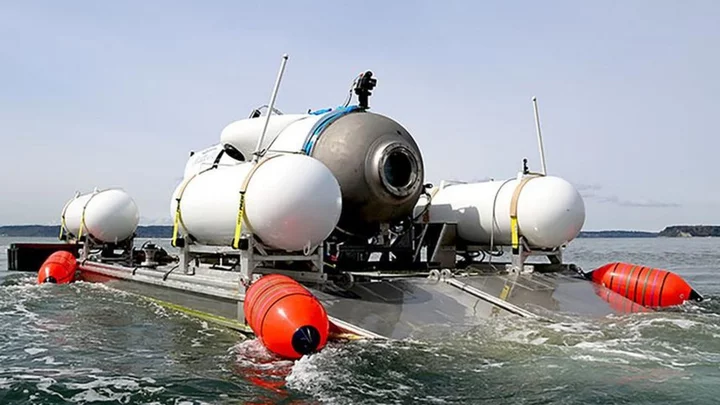
Titanic sub search: What happens next
Personnel continue to scour the area where debris from the vessel was found.
2023-06-23 09:26
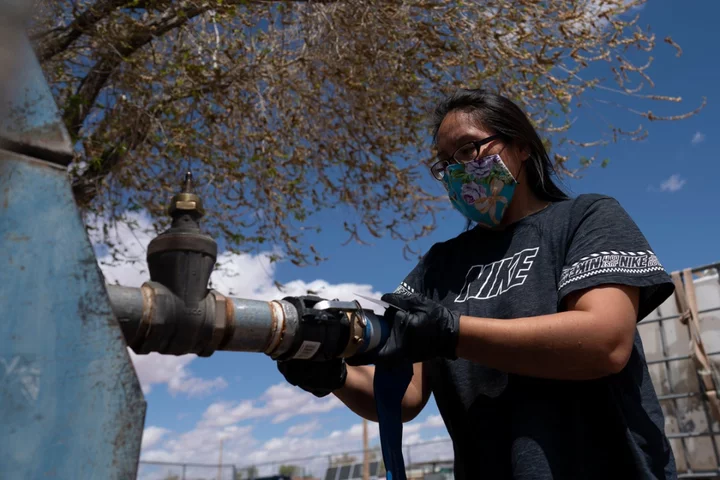
Supreme Court rules against Navajo Nation’s access to drought-stricken Colorado River, despite US treaty
The Supreme Court ruled on Thursday against the Navajo Nation in a dispute concerning the tribe’s access to the drought-stricken Colorado River. Critics says the decision harms a community where an estimated one-third of tribal members lack running water and furthers the history of the US government breaking its promises to tribes. The case, Arizona v Navajo Nation, centres on the obligations of an 1868 treaty, which established the Navajo reservation as the tribe’s permanent home, following their forced removal from their ancestral lands by the United States military. The tribe argued that under the treaty, the US government has an obligation to evaluate the tribe’s need for water and factor that analysis into how it divides up water access to the Colorado River, which serves over 40 million people and passes through seven states. The US government, as well as the states of Arizona, Nevada, and Colorado, and various water districts in California, argued against the tribe in consolidated appeals. They claimed that the tribe’s interpretation of the treaty would undermine existing agreements on sharing the water from the Colorado and create and impose unsubstantiated obligations on the US government to develop water infrastructure for the tribe. In a 5-to-4 decision, all but one of the high court’s conservatives ruled against the tribe. “In light of the treaty’s text and history, we conclude that the treaty does not require the United States to take those affirmative steps,” Justice Brett Kavanaugh wrote in the majority opinion. “And it is not the Judiciary’s role to rewrite and update this 155-year-old treaty. Rather, Congress and the President may enact — and often have enacted — laws to assist the citizens of the western United States, including the Navajos, with their water needs.” The court’s three liberal justices, as well as the Trump-appointed Neil Gorsuch, an advocate for tribal rights, dissented. “The Navajo have waited patiently for someone, anyone, to help them, only to be told (repeatedly) that they have been standing in the wrong line and must try another,” he wrote in his dissenting opinion. He argued, alongside the tribe, that the Navajo weren’t forcing the US government to immediately start building water infrastructure or changing water claims on the river, but rather begin the process of fully accounting for what the nation needed. Navajo representatives criticised the ruling. "My job as the president of the Navajo Nation is to represent and protect the Navajo people, our land, and our future,” Navajo Nation president Buu Nygren said in a statement after the ruling. “The only way to do that is with secure, quantified water rights to the Lower Basin of the Colorado River.” With a population of about 175,000 and a land mass larger than West Virginia, the Navajo Nation is the largest US tribal reservation, and the Colorado River and its tributaries flow alongside and through the tribe’s territory. “The US government excluded Navajo tribal citizens from receiving a share of water when the original apportioning occurred and today’s Supreme Court decision for Arizona v. Navajo Nation condoned this lack of accountability,” John Echohawk, executive director of the Native American Rights Fund, one of the many Indigenous groups that filed briefs in support of the Navajo Nation, said in a statement. “Despite today’s ruling, Tribal Nations will continue to assert their water rights and NARF remains committed to that fight.” In 2003, the Navajos sued the federal government regarding access to the Colorado River, while the tribe has also fought for access to a tributary, the Little Colorado River, in state court. As The Independent has reported, many on the Navajo nation struggle for basic water access. “If you run out [of water] in the evening, you have to get up earlier the next day to make sure that there’s water for the kids to wash hands, brush their teeth, make breakfast,” Tina Becenti told The Independent. “It was time-consuming and took a lot of energy.” Tribes were cut out of initial deals made to allocate the water on the Colorado River, leaving many to rely on thousands of unregulated wells, springs, and livestock troughs that are spread across the reservation, which can pose a serious health risk. According to the Environmental Protection Agency, these sources may contain bacterial or fecal contaminants, along with unsafe levels of uranium and arsenic – a legacy of mining on Navajo land which began with the US military’s Manhattan Project for nuclear weapons in 1944 and continued until 2005. The fate of the Colorado River has become increasingly contentious, as the vital waterway dwindles under heavy demand and a changing climate. In May, following years of tense negotiations, Arizona, California, and Nevada agreed to cut their use of water from the Colorado in exchange for $1.2bn in federal funding, a last-minute compromise that staved off catastrophic impacts to agriculture, electricity generation, and water supplies to major cities like Phoenix and Los Angeles. The high court decision follows a ruling this month on another topic with a long and complicated history involving tribal groups: adoption. Last week, a 7-2 majority ruled to preserve the Indian Child Welfare Act, defending the law’s preference for the foster care and adoption of Native children by their relatives and Tribes, which was implemented following investigations that revealed more than one-third of Native children were being removed from their homes and placed with non-Native families and institutions, cutting off important family and cultural ties. Louise Boyle and Alex Woodward contributed reporting to this story. Read More Father of 13 dies in Colorado rafting accident after saving his children from danger Feds announce start of public process to reshape key rules on Colorado River water use by 2027 Nevada fight over leaky irrigation canal and groundwater more complicated than appears on surface Supreme Court rules against Navajo Nation in Colorado River water rights case Feds announce start of public process to reshape key rules on Colorado River water use by 2027 Vegas water agency empowered to limit home water flows in future
2023-06-23 09:21

Trump reveals how many holes-in-one he’s aced – more than Rory McIlroy but fewer than Kim Jong-il
Former President Donald Trump has made plenty of bold claims about his achievements in the game of golf over the years — and he offered another one on Thursday when he claimed he’s made seven holes-in-one during his life. It’s a remarkable number. Rory McIlroy has apparently made just two holes-in-one in his professional golf career, one on the Abu Dhabi HSBC Golf Championship in 2015 and one on Thursday at the Travelers Championship in Cromwell, Connecticut. When it comes to world leaders, however, Mr Trump does not yet have the field beat. According to official accounts, Kim Jong-il, the former leader of North Korea, shot 11 holes-in-one in a single round during his first ever golf game at the Pyongyang Golf Course in 1994. Still, seven holes-in-one is no small accomplishment — and it’s not the first time Mr Trump has claimed it. Last year, Mr Trump also told Piers Morgan that he’d shot seven holes-in-one. That interview came just weeks after Mr Trump posed with a group including former PGA Tour professional Ernie Els after supposedly shooting a hole-in-one at a course in Commerce, Georgia. The dates of Mr Trump’s other supposed holes-in-one are less clear, but there is no question that the former president is an avid golfer. He owns courses in multiple countries and plays frequently, a habit that he continued even while serving his four years as president. But Mr Trump has also long been dogged by allegations that he cheats at golf. The former Sports Illustrated writer Rick Reilly in 2019 published a book titled Commander in Cheat: How Golf Explains Trump that delves into the former president’s relationship with the game. “Trump doesn’t just cheat at golf,” Reilly writes. “He throws it, boots it, and moves it. He lies about his lies. He fudges and foozles and fluffs. At Winged Foot, where Trump is a member, the caddies got so used to seeing him kick his ball back onto the fairway they came up with a nickname for him: ‘Pele.’” Reilly also claims that Mr Trump’s boast that he has won 18 club championships in his life — made a decade ago to Mark Cuban — is a lie. Reilly has said that whenever the former president has opened a new golf club he plays the first club championship by himself and declares himself the winner. “Donald’s Trump’s boast about winning 18 club championships is a lie that’s so over-the-top Crazytown it loses all credibility among golfers the second it’s out of his mouth,” Reilly wrote. Mr Trump has bigger issues to deal with than his golf record. He’s running for president again, this time under federal indictment for mishandling classified documents. Read More Trump news – live: Trump pleads for help from Congress as DoJ shares first classified documents evidence Trump, DeSantis interviews show Fox influence on GOP field still strong despite troubled year Ivanka and Jared split over attending Trump 2024 launch – follow live Why was Donald Trump impeached twice during his first term? Four big lies Trump told during his 2024 presidential announcement
2023-06-23 09:21
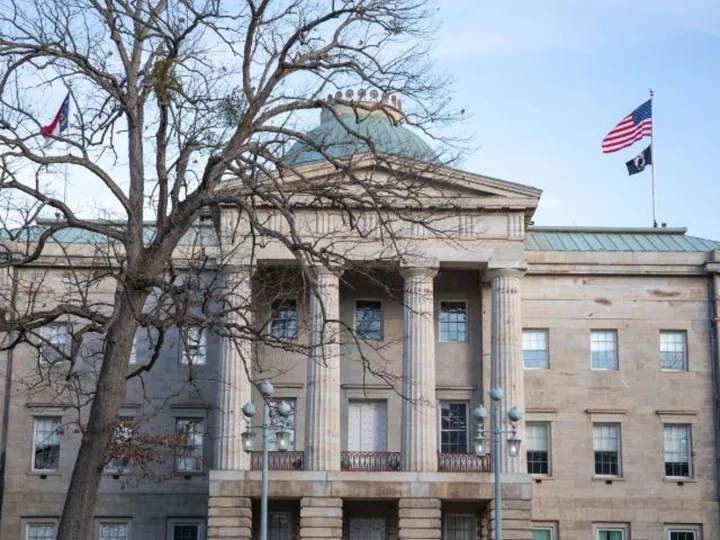
North Carolina legislature passes ban on transgender athletes from girls' sports teams
The Republican-controlled North Carolina state House gave final approval to a bill Thursday that would ban transgender girls and women from competing on middle school, high school and college sports teams that align with their gender identity.
2023-06-23 08:56

Temu: Risk popular website sells forced labour goods
The claims arise from an investigation into a US law barring imports made with Uyghur labour.
2023-06-23 07:53

Whistleblowers say IRS recommended far more charges, including felonies, against Hunter Biden
Two whistleblowers told Congress that IRS investigators recommended charging Hunter Biden with attempted tax evasion and other felonies, which are far more serious crimes than what the president's son has agreed to plead guilty to, according to transcripts of their private interviews with lawmakers.
2023-06-23 07:27
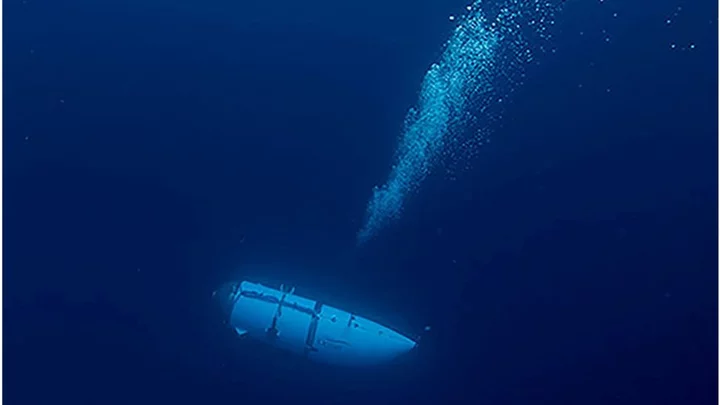
Titanic sub search: US Navy detected implosion-like sounds days ago
The US Coast Guard are said to have used the information to narrow the search area.
2023-06-23 07:23

Facebook and Instagram to restrict news access in Canada
It comes after parliament passed a bill requiring tech giants to compensate publishers for news.
2023-06-23 07:22

Titanic director James Cameron: 'I felt in my bones what happened' to sub
James Cameron, who has done 33 dives to the Titanic, tells the BBC he predicted the sub's loss days ago.
2023-06-23 07:18

Hunter Biden expected to be among high-profile guests at state dinner honoring Indian PM Modi
Hunter Biden is expected to attend the state dinner for Indian Prime Minister Narendra Modi Thursday evening, according to a guest list released by the White House, marking his first public appearance at the White House since his plea agreement was announced.
2023-06-23 06:45
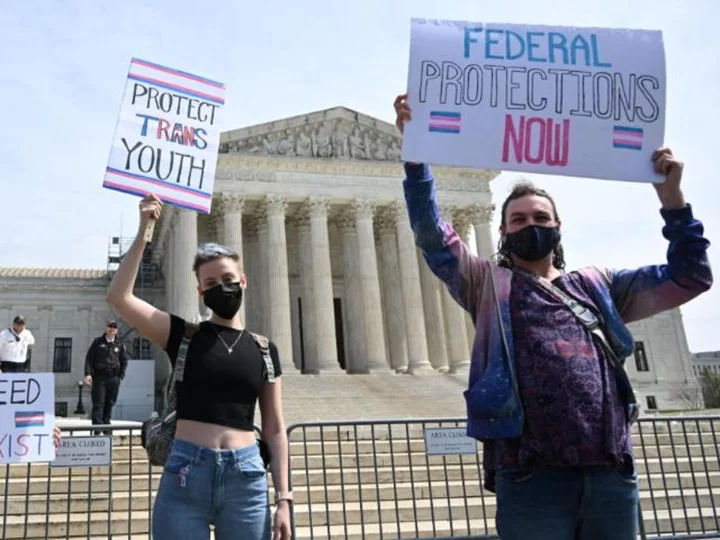
Justices consider taking up case on whether Americans with Disabilities Act protections cover gender dysphoria
The Supreme Court met behind closed doors on Thursday to decide if it will take up a case concerning whether the Americans with Disabilities Act covers individuals with gender dysphoria.
2023-06-23 06:21
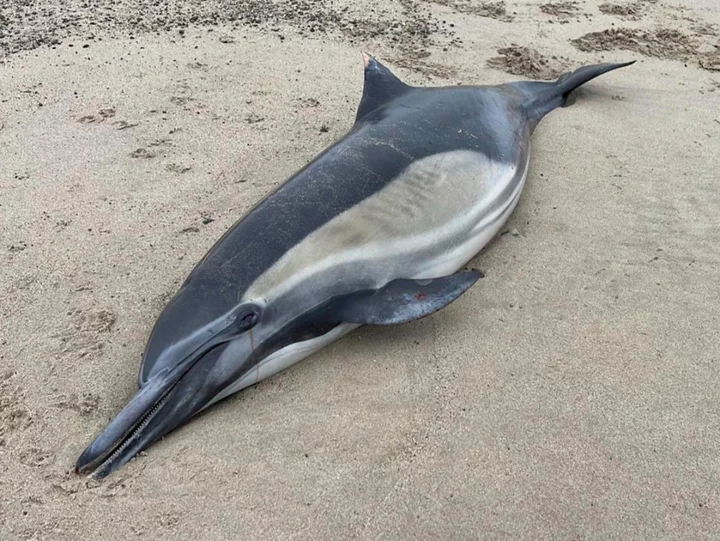
Toxic algae is killing hundreds of dolphins and sea lions washing up on California beaches
Toxic algae are killing hundreds of dolphins and sea lions which are then washing up on beaches in Southern California. The National Oceanic and Atmospheric Administration (NOAA) has said that more than 1,000 animals have grown sick or died just this month. While algal blooms may be a seasonal problem, the climate crisis could be making the issue worse. More than 200 reports of animals in distress reach rescue groups every day. Biological sciences professor at the University of Southern California, David Caron, told the BBC that “I’ve heard of a number of people walking the beaches who have seen [sick] animal after [sick] animal”. “Animal rescue groups are scrambling to try to get boots on the ground to get the animals protected,” he added. Sea birds, dolphins, and sea lions are growing ill because of the expansion of some algae-producing domoic acid, a toxin. Dr Caron told the BBC that the algal blooms disrupt food webs. Shellfish, anchovies, and sardines eat the harmful materials before being eaten by animals further up the food chain. “They eat a meal of those highly toxic fish and then they become toxified themselves, and if they get enough of that material, it of course can kill them, which is happening now,” he said. NOAA states that Santa Barbara and Ventura counties are among the worst affected. The Channel Islands Marine & Wildlife Institute co-founder Ruth Dover said in a statement, “We are doing the best we can to keep up with the intense pace,” of reports of marine mammals in distress. Domoic acid can make animals disoriented or they may even convulse and die while under the surface. The blooms may be harmful to humans as well since people may grow ill if they eat fish that have toxins. But the California Department of Public Health monitors such levels and will shut down shellfish beaches when needed, Dr Caron noted. People could also attempt to approach larger marine mammals, such as sea lions and dolphins if they’re stranded on land, but the animals may be aggressive under the influence of the toxins. Marine animals should be avoided, and people should instead call for the help of rescue groups. Some animals have been rescued after being captured and fed. After they have been provided with liquids, the animals may be able to flush the toxins out. The algae blooms usually take place between March and June in California, but the long winter means that the blooming is occurring later in the season. Experts have noted that while not all kinds of algae are harmful, more of those that are dangerous are spreading to new areas because of the climate crisis. Higher water temperatures mean that larger areas are now habitable for the algae. Dr Caron said scientists are attempting to fully understand the effects of the climate crisis on organisms living along coastlines. “But we have a fair amount of evidence, especially in inland waters, that climate change is exacerbating some of the problems that we’re seeing with harmful algae,” he told the BBC. Read More To restore reefs dying in warming seas, UAE turns to coral nurseries Poland, Germany discuss avoiding repeat of deadly river pollution but ready for all scenarios Chesapeake Bay report cites environmental justice disparities How deep is the ocean and what’s at 3,900 metres? How deep is the ocean and what’s at 3,900 metres? Tropical Storm Bret’s hurricane forecast downgraded but Caribbean remains on alert
2023-06-23 05:57
